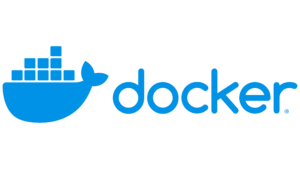mintCast 282 – How to be better at your IT profession
282]
Bi-weekly Wanderings:
- Isaac ordered a new Linux Mint shirt, finished a book on Bayes, then realized he’s volunteered for too many things.
- Rob’s been away in Australia for the past month, finished a book by Andy Weir, and started looking into Clang.
News:
- Linux Mint Blog – Feb update
- LFS Stable Version 8.2 Release
Linux Innards:
- Rob and Isaac talk about ways that to become better at your job, if you are an IT professional and also how to get hired if you are just now getting into the IT profession.
Vibrations from the Ether:
- Contribute to Linux Mint!
Check this out!:
- Isaac
- Darknet Diaries
- Vimium
- Chrome plugin for using Vim on most webpages
Pre-Show Music:
- “Yesterday’s Conversation” by Angus Wallace
- “The Red Stone” by Ground & Leaves
Podcast Announcements:
- Send us your bumper or intro or outro music.
- Next time we’ll be discussing last year’s and new year’s predictions.
- Merry Christmas and Happy New Year to everyone….we’ll be back in 3 weeks!
More Information:
Hosts: Rob and Isaac
Live Stream every other Sunday 2:00 p.m.(Central): mintcast.org/livestream
Contact Us:
- Forum: forums.linuxmint.com (rarely)
- Email: [email protected]
- Twitter: @mintCast @txhawkins @Linux_Mint
- IRC: irc.spotchat.org – #mintcast
- Google+: mintCast
More Linux Mint info: website, blog, forums, community
Credits:
Podcast Entry and exit music provided by Mark Blasco (podcastthemes.com). Podcast bumpers provided by Oscar.
Podcast: Play in new window | Download
Subscribe: RSS




Great episode, welcome back, Rob! Lots of random feedback for you:
It’s amazing all the projects Isaac gets invovled with. Isaac, did you say that you were working with a GNU project that wanted to switch away from MIT licensed components because they weren’t free? I didn’t understand that because the MIT license is an FSF approved “free” license and is compatible with the GPL.
Isaac described Bayesian statistics as starting with a prior model and updating that model as new data is obtained. That is how I have heard it described as well. A couple points about Bayesian statistics that helped me understand why it seems so popular now are that the calculations necessary to update a model like this require good computing power and so weren’t easy to do in the past and that now companies are doing a lot more with data and data science so being to make use of even small amounts of data is more desirable.
Isaac, given what you said about vim, I can tell you the best way to use emacs — the evil package: https://github.com/emacs-evil/evil. I could share my init.el with you, but another option is to look at Spacemacs (http://spacemacs.org/) which is a curated set of packages and customizations for emacs and includes evil.
I have been using Vimium since Firefox 57 which introduced compatibility with Chrome extensions and broke all of the legacy Firefox extensions. Before that, I used Vimperator/Pentadactyl on Firefox. You can try them out on Firefox 52 (the extended support version) if you are curious (you can get a working version of Pentadactyl here: https://github.com/willsALMANJ/pentadactyl-signed/releases). They are much more powerful than Vimium because old XUL Firefox extensions had access to basically all of Firefox and interact with the UI rather than be confined to the page content. The successor to Vimperator/Pentadactyl is called Tridactyl. It is nice because still a little unstable (so I use Vimium for now). The main feature of Vimium for me is being able to follow links without using the mouse.
I think Isaac should at least be familiar with clang/LLVM since he is so involved with GNU. I’m not sure about the full history, but clang/LLVM grew into a large project because Apple invested a lot of development into it. One of the main motivations for this was to have a compiler toolchain with a permissive license that could be used instead of the GPL’d gcc. So you can view clang as a threat to one of the lynchpins of the GNU project — clang/LLVM are becoming the new standard, draining mindshare that used to go to gcc.
The podcast has looked at Arch and LFS. Have you thought about looking at Gentoo? It seems to be a middle ground between LFS and Arch, but I have never tried to work with it. Another LFS-like project I came across recently is LinuxBrew (http://linuxbrew.sh/). It is a port of HomeBrew on MacOS to Linux. The tagline for HomeBrew is “the missing package manager for MacOS” so it is funny to port it to Linux. It compiles its own gcc, glibc, binutils, etc and then builds other packages with them, so kind of like the beginning of LFS but you don’t make it your main system. I was looking at it for building new software on an old system without changing the OS. It worked for simple programs like emacs and git, but I didn’t get as far as I wanted (getting new Firefox working on CentOS 6). There are other similar projects you could look at like Nix, Flatpak, and Ubuntu snaps.
Here is another project I came across recently slightly related to LFS and your discussion about learning new things: https://intermezzos.github.io/ It is an operating system tutorial that uses Rust. I haven’t had time to try to go through the lessons of the book yet.
On the topic of podcasts, have you listened to the new Malicious Life? There is a shout out to you two at the end. Also, one podcast that you might like that is similar to the main topic of episode 282: Using Reflection (http://usingreflection.com/). It is an interview style podcast with software engineers where the host tries to get them to talk about their biggest challenges, nuggets of wisdome they have picked up over the years, etc.